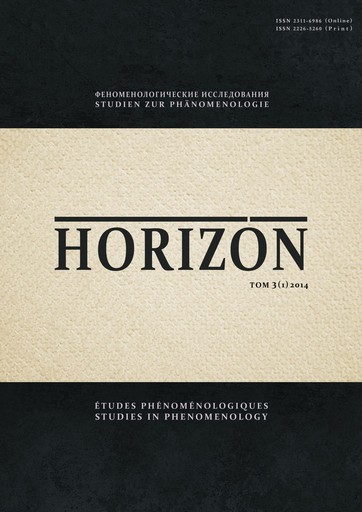ПРЕДИСЛОВИЕ К ПУБЛИКАЦИИ ПЕРЕВОДА СТАТЬИ КЛАУСА КЭЛЕРА
«СОЗНАНИЕ И ЕГО ФЕНОМЕНЫ: ЛЕЙБНИЦ, КАНТ И ГУССЕРЛЬ»
THE PREFACE TO THE TRANSLATION
K. KAEHLER. CONSCIOUSNESS AND ITS PHENOMENA: LEIBNIZ, KANT, HUSSERL
Author(s): Andrei Patkul, Olga BashkinaSubject(s): Aesthetics, Phenomenology
Published by: Издательство Санкт-Петербургского государственного университета
Keywords: Leibniz; Kant; Husserl; consciousness; transcendental turn; reason; perspectivism
Summary/Abstract: The article treats the notion of consciousness in three theories: those of Leibniz, Kant andHusserl. Klaus Kaehler tends to examine how these three doctrines relate to each other andwhether it is possible to register a linear development among them. Though Kaehler underlinesdifficulties in coparing views of these philosophers, he draws some informative parallelsbetween them. The author starts off by mentioning Leibniz as the bearer of the initial understandingof consciousness and emphasizing that Leibniz’ monadology contains the basic formof the ideas which will be later expressed by Kant and Husserl. Defining cosciousness as thenotion of the being’s mode, and accordingly, the structure of the subject, Kaehler unfolds theinterpretation of this notion both before the transcendental turn and after it. He holds Leibnizto be responsible for the transcendental turn, as Kaehler find a crucial element of Leibniz’theory: the dependence of each and every being from the independent substantial unity (themonad). According to Leibniz, the outer world exists only in the form of mutual self-representationof the monads. What Kant does, according to Kaehler, is that he on the basis of Leibniznotes that not only an existing individual substance, but the finite reason-subject should beconsidered in its limits. As a result, eerything existing is determined by the immanent structureof the subjectivity. Husserl in his turn insists on examining the activities and intentionalityof the consciousness. Thus, he eliminates any sort of substantiality or relation from this notion.
Journal: Horizon. Феноменологические исследования
- Issue Year: 3/2014
- Issue No: 1
- Page Range: 165-170
- Page Count: 6
- Language: Russian

